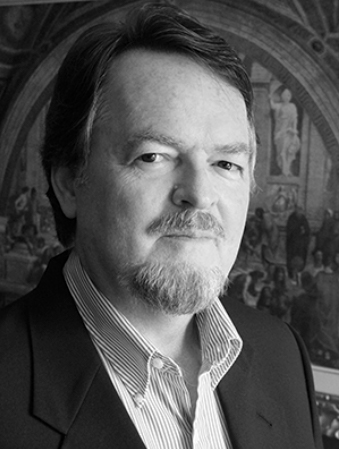Another view on hell – Annihilationism
by | Posted April 20th at 10:42am
The following is the beginning of a rather large undertaking, as I study the few theological views of Hell, without any foregone conclusions. I’ve put this off for years because I knew it would be time-consuming, and annoy some for even doing so. I start with the following study. Why? When in seminary studies in a predominantly Baptist, Pentecostal, Wesleyan, student body, during lunch gatherings, there arose a very interesting academic discussion on Annihilationism as a view on Hell, which many mainline theologians have adopted, including one of my favourite Calvinist theologians, deceased B B Bruce.
The generally accepted, historic position of the church has been that after the final resurrection and judgment, mankind will either live blessedly in the presence of God or live in conscious torment in the fires of hell away from the presence of God forever. Jesus seems to have much support for this viewpoint.
Let’s first test the hypothesis of the view of Annihilationism.
The View of Annihilationism
The following is only a beginning, on this viewpoint. I will be digging deeper into the subject, from most every theologian in support of Annihilationism. Then I will go on to look at the Traditionalist view.
The theological term “Annihilationism” offers up a view of God that will rid his kingdom of all the unrighteous for eternity, which means that he will not punish them torturously for eternity. This doctrine has another theological term to define those that follow this viewpoint of hell — they are referred to as “conditionalist”. They hold strong biblical arguments falling into three broad categories: 1) the biblical vision of eternity, 2) the biblical vocabulary of divine punishment, and 3) the biblical concept of justice.
Annihilationism’s biblical vision of eternity The Bible speaks glowingly of the ultimate victory of Christ over all His enemies, resulting in a universe free from all the effects of the curse, including rebellion, sin, death, and suffering. Many would argue that the traditional view of hell—according to which most of mankind will be endlessly tormented, dwelling in an infernal state of continual rebellion and hatred toward God—does not square with such a vision. It leaves some major business unsettled—or else settled in a very unsatisfactory way. 1 Well respected mainline theologians agree:
This is one of the major pillars upon which the theologian, John R. W. Stott built his case for annihilationism. He wrote: The eternal existence of the impenitent in hell would be hard to reconcile with the promises of God’s final victory over evil, or with the apparently universalistic texts which speak … of God uniting all things under Christ’s headship (Ephesians 1:10), reconciling all things to himself through Christ (Colossians 1:20), and bringing every knee to bow to Christ and every tongue to confess his lordship (Philippians 2:10–11), so that in the end God will be “all in all” or “everything to everybody”, even to those everywhere – even “under the earth” (Philippians 2:10); see also )1 Corinthians 15:28). After surveying various scriptures about the reconciled creation, Stott further remarked: “These texts do not lead me to universalism, because of the many others which speak of the terrible and eternal reality of hell. But they do lead me to ask how God can in any meaningful sense be called ‘everything to everybody’ while an unspecified number of people still continue in rebellion against him and under his judgement.” 2
Clark Pinnock echoed this same sentiment: “History ends so badly under the old scenario. In what is supposed to be the victory of Christ, evil and rebellion continue in hell under conditions of burning and torturing.… The New Testament says that God is going to be ‘all in all’ (1 Cor. 15:28) and that God is going to be making ‘everything new’ (Rev. 21:5).” 3 In the common traditionalist view that sinners remain in a state of rebellion against God forever in hell, the creation is never really free from sin at all. Rebellion has not been conquered. It has only been marginalized and contained in one compartment of the creation. Nor has any final justice been served, since the punishment continues endlessly and is never completed. According to annihilationists, though, all those who remain impenitent to the end will be removed from existence, leaving only such a remnant as would fit the biblical descriptions of a reconciled world and humanity. Hence, the glorious vision of an undefiled eternity is realized by the complete elimination of the contaminating element. 3
Philip E. Hughes, a convinced conditionalist who lectured at Westminster Theological Seminary and was one of the editors of Westminster Theological Journal, wrote: The conception of the endlessness of the suffering of torment … leaves a part of creation which, unrenewed, everlastingly exists in alienation from the new heaven and the new earth. It means that suffering and death will never be totally removed from the scene.… To this must be objected that with the restoration of all things in the new heaven and the new earth, which involves God’s reconciliation to Himself of all things, whether on earth or in heaven (Acts 3:21, Col. 1:20) there will be no place for a second kingdom of darkness and death. 34
1 Steve Gregg, All You Want to Know about Hell: Three Christian Views of God’s Final Solution to the Problem of Sin (Nashville: Thomas Nelson, 2013), 200–202.
2 Theologian, John R. W. Stott
3 Theologian, Clark Pinnock
4 Theologian, Philip E. Hughes, a convinced conditionalist who lectured at Westminster Theological Seminary

Article posted by Glen R. Jackman, founder of GraceProclaimed.org
Glen has optimized his eldership role to teach the full scope of the New Covenant of Jesus Christ without
boundaries.
You can read his testimony.